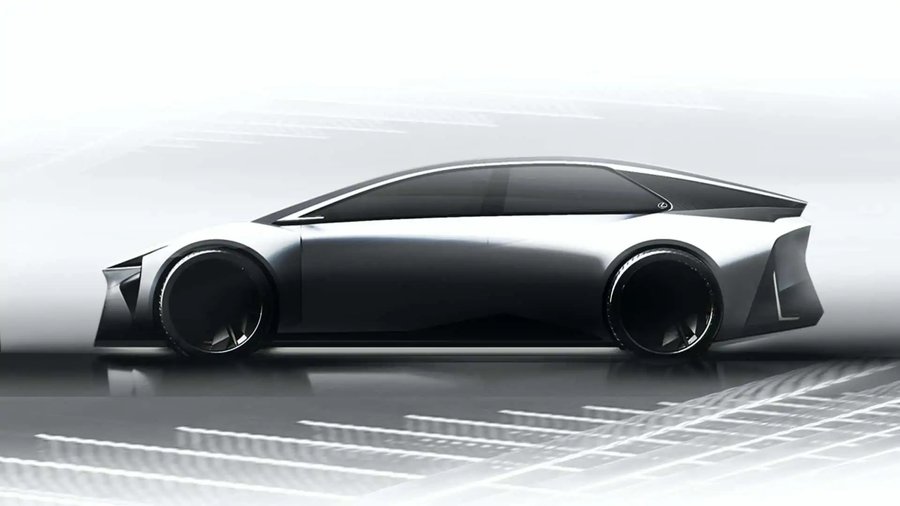Toyota next-gen EVs to arrive in 2026 with 497 miles of range

Toyota’s next generation of electric cars will offer new battery options that will increase range to 497 miles and be up to 40% cheaper than the Toyota bZ4X when they arrive in 2026.
The two electric car batteries – the range-focused lithium ion Performance and the affordability-focused lithium-iron-phosphate Popularisation – are part of a push from the Japanese firm for its EVs to appeal to a wider customer base.
Between 2027 and 2028, a lithium ion High Performance pack offering 621 miles of range will replace the Performance battery in the line-up. It will also be 10% cheaper, Toyota said.
“We will need various options for batteries, just as we have different types of engines,” said Takero Kato, president of Toyota's EV development centre. “It's important to offer battery solutions compatible with a variety of models and customer needs."
The models that will use these batteries – which will account for 1.7 million of the 3.5 million BEVs that Toyota expects to sell globally by 2030 – will also be designed to be lighter and more aerodynamic than the Japanese brand’s already slippery (but heavy) sole BEV in a bid to maximise efficiency.
Key to the aerodynamics will be flatter batteries. Toyota said reducing the height of the battery is a key factor for improved efficiency, because this in turn allows for a lower, more aerodynamic design that reduces drag.
In today’s bZ4X, the battery is around 150mm high, but this will be reduced to 120mm for the next generation models.
Toyota also confirmed that this will allow it to produce “high-performance sports models” with a battery height of 100mm targeted.
Toyota solid-state batteries to offer 994 miles
Today’s news follows a breakthrough in battery technology that will enable Toyota to mass-produce solid-state batteries – so called because they use a solid electrolyte rather than a liquid one, as in today’s lithium ion batteries – by 2028.
These first-generation solid-state batteries will also offer a range of 621 miles but be able to fill from 10-80% in 10 minutes via a fast charger, compared with the High Performance lithium ion pack’s 20 minutes via a rapid charger.
A higher-specification solid-state battery is under development targeting a range of more than 994 miles.
The introduction of solid-state batteries means car makers could drastically increase the range of EVs without also incurring a size or weight penalty. They also achieve the same range with a significantly reduced weight.
Solid-state batteries open door for lightweight electric sports cars
Toyota hinted at the sorts of EVs that solid-state technology could facilitate in 2021, when then-president Akio Toyoda shocked with the unveiling of 15 electric concept cars, including a low-slung, GR-branded two-seater in the mould of the old Toyota MR2.
Toyota has also said that the electric successor to the Lexus LFA supercar – shown in concept form at last year’s Goodwood Festival of Speed – is likely to use a solid-state battery.
It will also feature a bespoke manual gearbox to make it more engaging to drive, which will be a first for a mass-production EV.
Solid-state batteries key to EV future
Toyota isn't alone in believing that it can commercialise solid-state batteries at last, following years of delays across the industry.
Nissan’s senior vice-president for research and development in Europe, David Moss, told Autocar in February that Nissan aims to bring the technology to market in 2028.
“We think we have something quite special and are in a group leading the technology,” said Moss. “We want to get the cost down [compared with lithium ion batteries] by 50%, to double the energy density and to offer three times the charging speed.”
In January, BMW announced a deal allowing it to build partner Solid Power’s solid-state cells in Munich, Germany. It aims to demonstrate these in a car within the next year and a half.
West Midlands Gigafactory strategy boss Richard Moore summarised the technology’s historic position neatly when speaking to Autocar in October 2022, saying: “The answer I always give on solid-state is that every time I look at it, it's 10 years away.
“To be fair, the last time I looked, it was an improving position. You can demonstrate it as a viable technology; the concept is proven in the automotive industry. It's a proven concept, but not to scale. So you can make one, but can you have one the size of a desk that you’re going to put into a [production car]? Not yet."
Nouvelles connexes


